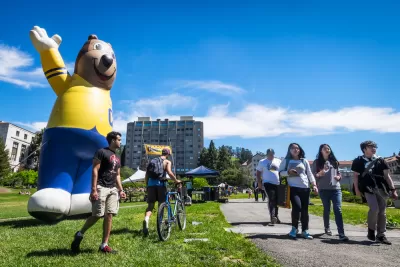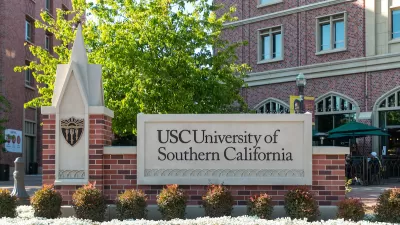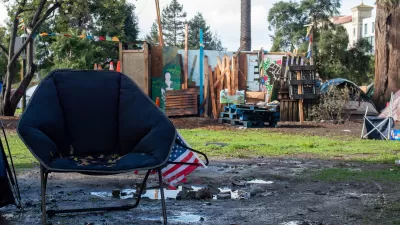The California Supreme Court ruled against the university in a battle over a proposed enrollment cap, forcing the school to reject thousands of potential new students.

After a legal battle over a proposed hike in enrollment, the University of California, Berkeley will be forced to cut enrollment by roughly 3,000 students in the coming fall. Nanette Asimov and Bob Egelko report on the saga, which began when a neighborhood group sued on the grounds that the university did not conduct the appropriate Environmental Impact Review (EIR) for its proposed expansion.
In August, Superior Court Judge Brad Seligman ordered the campus to cap enrollment at 42,237 — the fall 2020 number — and to halt construction of its Upper Hearst project at 2698 Hearst Ave.: two buildings intended to house professors and add classrooms for the Goldman School of Public Policy. Neighbors had argued that the university failed to properly plan for the increased noise, traffic and other quality-of-life problems the project would bring.
Save Berkeley's Neighborhoods, the group that brought the lawsuit, says it does not want to stop the university's projects altogether, but rather to ensure the university conducts an adequate analysis of potential impacts. "On a 4-2 vote, in a one-sentence order without further comment, the court refused to lift the enrollment freeze ordered by an Alameda County judge and denied review of an appellate ruling requiring the university to conduct further environmental review of an off-campus construction project while it limits incoming enrollment."
The article details the lawsuit and subsequent appeals, which culminated on March 3 with the California Supreme Court decision.
A proposed state bill making its way through the California legislature would exempt public universities from CEQA requirements, which could prevent future battles similar to this one.
FULL STORY: UC Berkeley must withhold thousands of acceptance letters after state Supreme Court ruling

Alabama: Trump Terminates Settlements for Black Communities Harmed By Raw Sewage
Trump deemed the landmark civil rights agreement “illegal DEI and environmental justice policy.”

Planetizen Federal Action Tracker
A weekly monitor of how Trump’s orders and actions are impacting planners and planning in America.

How Atlanta Built 7,000 Housing Units in 3 Years
The city’s comprehensive, neighborhood-focused housing strategy focuses on identifying properties and land that can be repurposed for housing and encouraging development in underserved neighborhoods.

In Both Crashes and Crime, Public Transportation is Far Safer than Driving
Contrary to popular assumptions, public transportation has far lower crash and crime rates than automobile travel. For safer communities, improve and encourage transit travel.

Report: Zoning Reforms Should Complement Nashville’s Ambitious Transit Plan
Without reform, restrictive zoning codes will limit the impact of the city’s planned transit expansion and could exclude some of the residents who depend on transit the most.

Judge Orders Release of Frozen IRA, IIJA Funding
The decision is a victory for environmental groups who charged that freezing funds for critical infrastructure and disaster response programs caused “real and irreparable harm” to communities.
Urban Design for Planners 1: Software Tools
This six-course series explores essential urban design concepts using open source software and equips planners with the tools they need to participate fully in the urban design process.
Planning for Universal Design
Learn the tools for implementing Universal Design in planning regulations.
Jessamine County Fiscal Court
Caltrans
Institute for Housing and Urban Development Studies (IHS)
City of Grandview
Harvard GSD Executive Education
Toledo-Lucas County Plan Commissions
Salt Lake City
NYU Wagner Graduate School of Public Service





























